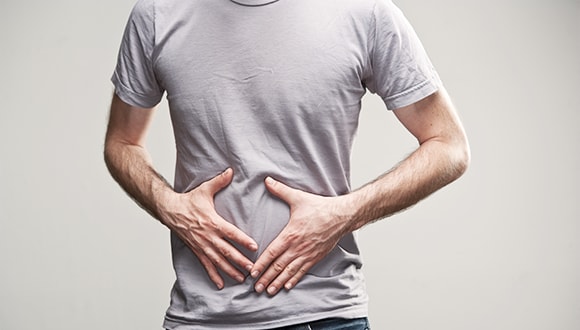The tiny capsule changing our understanding of gut health
The key to assessing gut heath may lie in an exciting new Australian invention.
Lucy E Cousins
July 2018
Checking on the health of your gut may soon be as simple as swallowing a capsule, say researchers from Melbourne’s RMIT University. Their findings show promise on a new electronic capsule that detects levels of hydrogen, carbon dioxide and oxygen in the gut.
The gas-sensing capsule, which is the size of a large pill, moves through the length of the digestive tract and sends data to your mobile phone every 5 minutes. This isn’t the same as a capsule endoscopy in which you swallow a capsule that houses a tiny camera which takes images of your gastrointestinal tract.
So far, the pilot trial has focused on a group of 7 people on varying diets. Researchers monitored the capsule’s journey through the gut using an ultrasound, and found there was a marked difference in the time it took depending on the person’s diet.
With a high-fibre diet, the capsule took around 21 hours to pass through the gut. However with a low-fibre diet the capsule took 36 hours.

Monitoring gut imbalance
Researchers hope the capsule will offer a non-invasive method to measure microbiome activity and become a useful method for detecting gastrointestinal imbalances.
"Our gas capsule offers an accurate and safe tool for monitoring the effects of diet on individuals and has the potential to be used as a diagnostic tool for the gut," said capsule co-inventor Kourosh Kalantar-zadeh from RMIT.
That’s the hope, says Peter Gibson, lead researcher and head of the department of gastroenterology at Monash University, where the trials were conducted.
“Everyone has different bacteria in their bowel which produce a different spectrum of gases, he says. “The balance of gases will dictate what sort of dietary therapy we prescribe to treat any stomach conditions.”
Gibson believes that the new capsule might also be useful for research and in monitoring how quickly food moves through parts of the bowel.
“But we are a long way from actually saying that for sure,” warns Gibson. “At the moment it’s all about ‘may’, ‘might, ‘would be’ ‘and ‘potential’ – we’re talking about in the future here but it’s very exciting.”
Ensuring better treatments
The new capsule might also be beneficial for people with from irritable bowel syndrome (IBS) and other gut-related illnesses.
“Since the gas levels [in the gut] are part of what we manipulate to treat people with IBS and other gut conditions, the capsule may be very useful in detecting what the actual physiology is in the person’s gut [the way the gut functions],” says Gibson.
IBS is diagnosed by a doctor using a series of ‘checklists’ and sometimes further tests. Gibson believes that although the capsule won’t help in the diagnosis of IBS, it could allow doctors to monitor how effective treatments are via unprecedented real-time updates.
The capsule also monitored the presence of oxygen in the colon, which, according to Kalantar-zadeh, could lead to a better understanding of diseases such as colon cancer.
Researchers are now aiming to raise funds for further testing, and the team has already set up a commercial company with the aim of conducting further research, before releasing the capsules to a wider market.
Related articles
DO HOME REMEDIES REALLY WORK?
Can old-fashioned remedies really cure everything from a cough to mouth ulcers? We ask the experts for their opinion.
A GUIDE TO BOWEL CANCER PREVENTION
One in 12 Australians will develop bowel cancer. Knowing the signs, and regular screening are key to tackling the disease.
THE SIGNS OF ASTHMA
Australia has one of the highest rates of asthma in the world. We discuss the symptoms and triggers, and how to manage the condition.